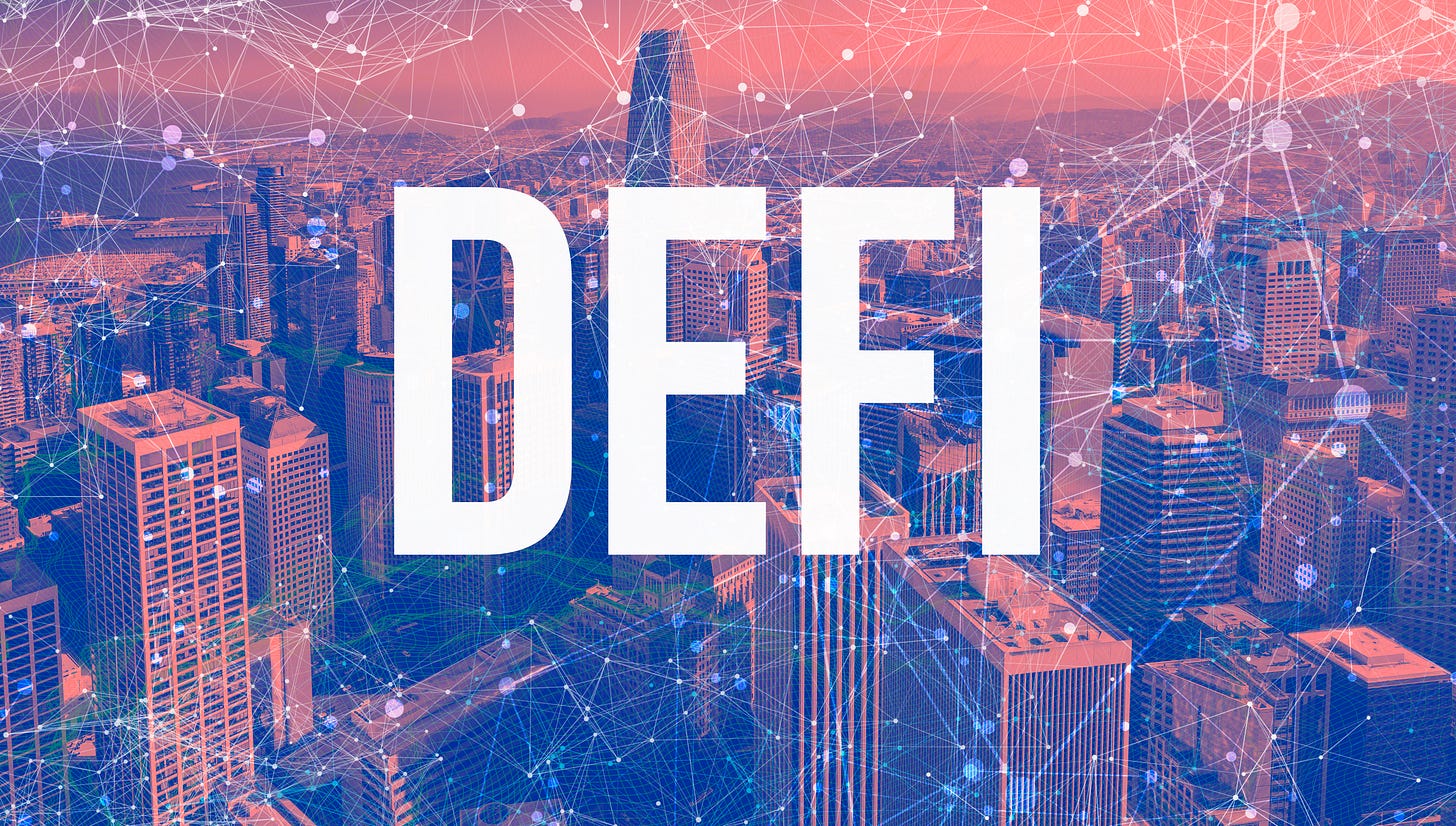Welcome to the fourth issue of Emerging Tech Law — a slightly irreverent view of regulatory developments (and other interesting stuff) relating to emerging technologies including AI, IoT, robotics, blockchain/crypto, 5G, artificial/virtual/extended reality, biotech and quantum computing.
In this issue:
(Almost) Nobody but you … understands quantum computing, at least you will after reading this week’s feature article.
Facebook morphs into “Meta.”
Code is law … except in an actual court.
Quote of the week:
“A classical computation is like a solo voice—one line of pure tones succeeding each other. A quantum computation is like a symphony—many lines of tones interfering with one another.”
―Seth Lloyd, MIT professor and author of “Programming the Universe: A Quantum Computer Scientist Takes on the Cosmos”
QUANTUM
Current State: Quantum computing and communications “could dramatically increase capabilities beyond what is possible with classical technologies,” but development will take years and require billions in investment, according to a recently released U.S. government report.
A U.S. GAO report outlines the current state of quantum, the challenges that will need to be overcome and the policy decisions that will need to be made.
First off, what is quantum computing? That’s a question that even really smart people struggle with, in trying to explain that traditional “classical” computers like the (desktop, laptop, phone or tablet that you’re reading this on) make calculations using bits that represent the on-or-off signals of 1s and 0s whereas quantum computers use something called “qubits,” typically subatomic particles that can hold multiple states.
Microsoft founder Bill Gates told a Wall Street Journal interviewer “I know a lot of physics and a lot of math. But the one place where they put up slides and it is hieroglyphics, it’s quantum.”
But here’s what you really need to know: quantum computers use advanced physics to solve some kinds of problems much faster than they can be solved with even the fastest classical computers.
How much faster? Get ready for some hyperbole and maybe take this one with a few grains of salt (and a qubit or two), but Chinese researchers recently claimed that a quantum computer called Jiuzhang 2, can calculate in a single millisecond a task that the world’s fastest classical computer would take 30 trillion years to do.
Umm …. Wow?
Even if you find that claim hard to believe, try this one from Google, although it met with some skepticism from rival IBM:
Google claimed that in 2019 its quantum computer Sycamore, developed in conjunction with NASA, could solve a problem in 3 minutes and 20 seconds that would take a powerful classical computer 10,000 years to solve.
So, even if you choose to discount these claims to some degree, it’s clear that that quantum computers are potential game-changers.
Fields of dreams
In what fields will quantum computing capabilities be most useful?
According to the GAO Report:
Quantum computers are theorized to outperform classical computers for some critical problems such as simulating certain chemical interactions and factoring large numbers into their prime components, a task that underpins certain security protocols. Quantum computers could find applications in agriculture, energy, finance, pharmaceuticals, supply chains, and security, but it is unclear where they will have the largest effect. Quantum computing could introduce calculation techniques that enhance drug design research, aerospace engineering, and financial portfolio management.
Here's a top 3 of some of the advances that could result from quantum computing:
1. Developing New Drugs: Simulations run on quantum computers could allow for faster drug development, possibly reducing the need for animal and human testing.
2. Making money: Imagine better analysis and faster trades. Imagine also an even more amped-up version of The Hummingbird Project.
3. Saving the earth: Models run on quantum computers could help us better understand climate change and find solutions.
Quantum technology can also be used for communications, which can be highly secure. In China, there is already a 1,265 mile quantum communications line between Beijing and Shanghai, and there are efforts underway in the U.S. to connect New York banks with New Jersey data warehouses via a quantum communications network.
Legal and Policy Issues?
For the most part, quantum computing does not raise legal issues that different from those raised by classical computing.
One exception is the concern that quantum computers could break the security system “that protects everything from online banking transactions to people’s online identities and private email message [and] relies on the difficulty conventional computers have with factoring large numbers.”
Guess what doesn’t have difficulty factoring large numbers? Quantum computers. But, fortunately, the National Institute of Standards and Technology is working on security tools that will survive a post-quantum world like we all survived Y2K.
In addition to security concerns, there is also the worry about increasing the digital divide as rich nations like the U.S. and China develop quantum technology while developing nations are left behind. To some extent, this may be lessened through access to cloud access to quantum computers. IBM is already offering a quantum cloud platform.
Keeping up with China
Top 10 countries producing scientific papers on quantum computing and quantum communications from 1996 to 2016
Quantum computing poses significant policy choices for the U.S. Remember Jiuzhang 2, the Chinese quantum computer that may be many times faster than Sycamore, the quantum computer that is a joint project of Google and NASA? Quantum computing is one more area in which the trade war turned cold war between the U.S. and China is playing out.
“As tensions between the two nations continue to rise, quantum research occupies an awkward spot: although it remains basic research with limited current applications, its future strategic potential is clear and immense …. Hawkish funding of quantum technology could further inflame relations, but it could also stimulate more cooperation and transparency between competing countries seeking to prove their quantum prowess.”
In one measure of progress, the U.S. leads China in the publication of scientific papers on quantum computing topics, but China leads the U.S. in publication of scientific papers on quantum communications topics, according to the GAO report.
Developing quantum technologies is going to be expensive and require a lot of really, really smart people. Its primary benefits are also years, if not decades away, according to the GAO report. One company told the GAO that its 10-year roadmap for quantum development would require an investment of $2 to $3 billion and 1,000 doctoral-level scientists and engineers.
Some of the policy questions and challenges the U.S. faces in trying to further develop quantum computing and communications capabilities and hold its own with respect to China include:
1. How much should the government invest in the development of quantum technology?
2. Should there be government/private collaborations? If so, how will issues such as ownership of intellectual property be handled?
3. How can we develop and attract the highly skilled workforce that will be needed? Will immigration policy need to reflect the desire for more quantum scientists/engineers?
4. Will we allow collaboration between U.S. companies and Chinese companies?
5. Will we allow Chinese investment in U.S. companies that are developing quantum tech?
6. How can we develop a robust supply chain for the components needed for quantum technology, particularly a supply chain that is not reliant on China?
There has been bi-partisan support in the U.S. for quantum. In 2018, Congress passed and President Trump signed the Quantum Initiative Act in 2018, which devotes $1.2 billion to quantum initiatives. Last month, the Biden White House hosted a quantum summit that included top government and industry leaders.
“Focusing on the hardest, most important problems; making and investing in the right technical bets; and building and growing the scientists, engineers, and entrepreneurs of tomorrow – all in our unique American model of fair and free-market competition and cooperation is how we will continue to lead.”
-Dr. Eric Lander, Presidential Science Advisor
For a deeper dive: The GAO report, Explainer: What is Quantum Communication?, Hello Quantum World.
EXTENDED REALITY
The Metaverse Part 2 of N
Facebook .. errr .. Meta prepares to immerse itself in the metaverse: As previewed in last week’s newsletter, Facebook announced that it’s so committed to founder Mark Zuckerberg’s vision of the “metaverse” that it’s changing its corporate name to Meta.
In a Founder’s Letter, Zuckerberg described the progress of the Internet from a mostly textual experience viewed on desktop computers, to a more visual and mobile experience as phones became equipped with cameras to a more video-focused experience as connections became better. The next progression, Zuckerberg said, is to a more immersive experience (a/k/a, the metaverse).
“In the metaverse, you’ll be able to do almost anything you can imagine — get together with friends and family, work, learn, play, shop, create — as well as completely new experiences that don’t really fit how we think about computers or phones today,” Zuckerberg said.
In a nod to some of the legal issues posed by the future metaverse and some that are currently afflicting Facebook, Zuckerberg said, “Privacy and safety need to be built into the metaverse from day one. So do open standards and interoperability. This will require not just novel technical work — like supporting crypto and NFT projects in the community — but also new forms of governance. Most of all, we need to help build ecosystems so that more people have a stake in the future and can benefit not just as consumers but as creators.”
Cynics may view the name change and redirect of efforts to the metaverse as a way for Facebook to divert attention from its currently PR and legal woes, but Zuckerberg told The Verge that the current bad news cycle “had nothing to bear on this. Even though I think some people might want to make that connection, I think that’s sort of a ridiculous thing. If anything, I think that this is not the environment that you would want to introduce a new brand in.”
For a deeper dive: Check out the Facebook Connect 2021 event.
BLOCKCHAIN
Code is law … except maybe in an actual court: A case in Canada may test a tenant held by some members of the distributed finance (Defi)* community: that code is law, meaning that if the software allows a certain action, then that action shouldn’t be viewed as illegal. (*Defi uses blockchain to manage financial transactions, seeking to exclude intermediaries such as banks and brokerage firms.)
A couple of weeks ago, Indexed Finance, a blockchain-based protocol for “managing” index-type funds noted that about $16 million of its $34 million in funds had been drained.
According to a Coin Desk article published by Yahoo, after an investigation by the Indexed team and industry experts, it was clear the funds were moved out of the Indexed account by an 18-year-old Canadian math prodigy who calls himself “Andy.”
The Indexed team asked Andy to return the funds, but Andy has refused on the ground that he merely engaged in a complex transaction that was permitted by the code.
Indexed has used outside counsel to report the “theft” to law enforcement. If law enforcement moves forward with a criminal case against Andy or if people who lost money sue Andy and Andy uses “code is law” as his defense, it could put “code is law” to the test in front of a judge.
And you can bet your bottom Bitcoin that the judge won’t be a member of the defi “code is law” community.
As Brian D. Quintenz, a former Commissioner of the Commodity Futures Trading Commission said in a 2018 speech, “I have heard some say that “the code is law,” meaning that if the software code permits it, an action is allowed. I disagree with this fundamental premise. Case law, statutes, and regulations are the law. They apply to the code, just as they apply to other activities, contracts, or agreements.”
Looking ahead, though, there may be a future in which software code does reflect the law and vice versa. Going back centuries in technology time to 1999 when “cyberspace” meant something like the metaverse does today and law professor Laurence Lessig wrote a book called “Code and other Laws of Cyberspace.”
“How the code regulates, who the codewriters are, and who controls the codewriters – these are the questions that any practice of justice must focus on,” Lessig wrote. “It may well be the case that cyberspace is OK as a company town; but even company towns have constitutional values imposed on them.”
And while some in the defi community may view “code as law” as permission to push the boundaries (and beyond) of what otherwise would be illegal behavior, what about the inverse – enforcement of the law via code?
What if the code that manages the operation of your car – semi-autonomous or otherwise – won’t let you break the speed limit, even by a little, or push a yellow light when you’re running late for an important appointment?
What if the software that runs Etsy automatically withheld taxes on the funny knit hats you crochet and sell as your side hustle and also reported you to the local authorities for running a non-permitted business out of your home?
For a deeper dive: Code and Other Laws of Cyberspace.
ALSO NOTEWORTHY
· The FAA and the FCC are sparing over a plan by the FAA to issue a warning to pilots and airlines about possible interference to cockpit safety systems from 5G signals. For their part, the FCC and telecom industry advocates deny that there is any basis for concern.
· NIH announced a partnership with the FDA, 10 pharma companies and five non-profit organizations to accelerate development of gene therapies for the 30 million Americans who suffer from a rare disease.
· Adobe will include features in its popular PhotoShop application to help creators prove the authenticity of their work, particular when they are sold as non-fungible tokens (NFTs).
Parting Thought:
Love what you do and do what you love. Doing something new and different requires a level of drive and passion that is really hard to fake. When your heart is behind what you are doing, so much is possible.
-Tracy Sun, co-founder of Poshmark
Obligatory disclaimer: Any opinions are those of the cited source or the author of this newsletter, not the author’s employer. If for some reason you think any legal advice is given in this newsletter, you’re sadly mistaken.








